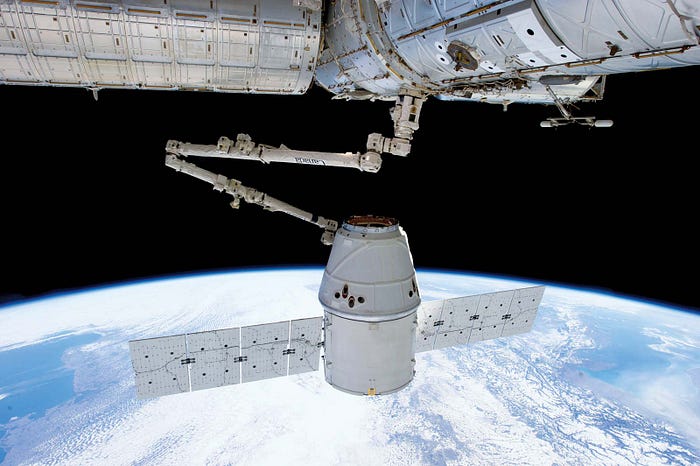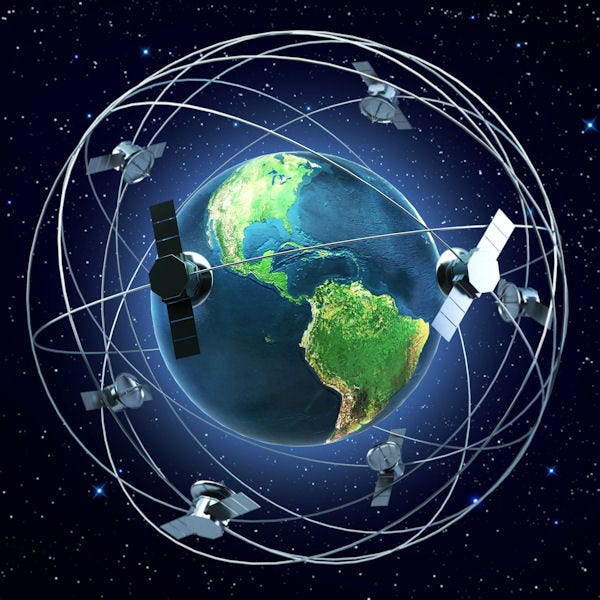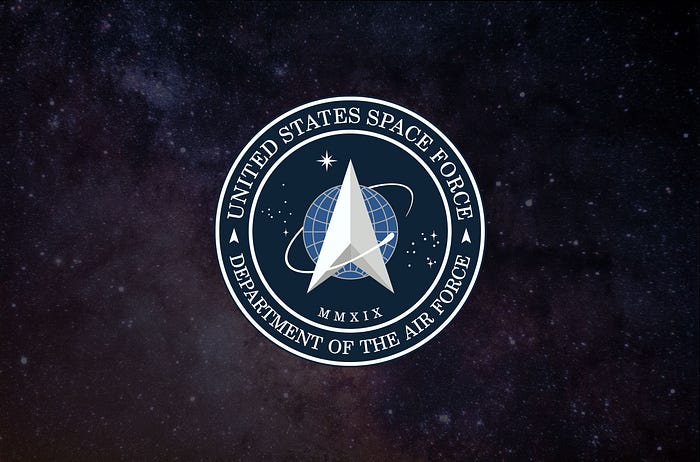WRITTEN BY: ZACH CHAMP
Connect with me on LinkedIn & Instagram!
![]()
SPACE IS MAGICAL. The vast reaches of the cosmos are another dimension, one which if humans can solidify their presence and grasp of will culminate in the evolutionary transcendence of mankind from humble earthly beings to denizens of the heavens!
Whoever controls Space will control the future…
There exist several industries that rely on space technology and which will become more relevant as we begin to exert our presence on the stars. These industries of the future will shape almost every aspect of society from economics to politics to culture.
They include:
- Telecommunications
- Off Planet Mining
- Space Engineering and Off-Planet Construction
- Commercial Space Travel
- Energy Production
- Off-Planet Agriculture
CORPORATE OR GOVERNMENT FUNDED SPACE EXPLORATION?
NASA has had a hard time accomplishing the basic feats of launching shuttles, satellites, and rockets due to a decrease in federal funding over the past three decades (rockets are expensive, who would have figured!)

As a result, NASA has had to adjust its strategy of exploration by focusing its organizational resources towards developing Satellites and relying on the help of private space companies who build and launch their own rockets to carry NASA’s important payloads to the stars above. These companies are the current vanguards of Space Exploration worldwide!
The Corporate dominance of the Space Industry has seen it’s heyday in the past few decades with the rise of these companies including SpaceX, BlueOrigin, Virgin Galactic, HyperGiant, and others…
Most private space corporations fund themselves from winning contracts for launching satellites, control systems, and other essential components into either Low-Earth Orbit (LEO) or Geosynchronous Earth Orbit (GEO). Some of these companies even pick up contracts to run supply missions to the International Space Station!

Above: The Dragon Capsule designed by Space X makes history as it docks with the International Space Station on May 25th, 2012!
![]()
HOW DOES SPACE BENEFIT ‘REGULAR’ PEOPLE?
All people of Earth should be able to participate in the rewards and benefits of the exploration and commercialization of space, it’s our human heritage and birthright.
The commercialization of Space will bring unparalleled wealth to the world economy and will raise the standard of living globally.
Trillions and trillions of dollars will be added through the rise of the off-planet mining industry alone… and no this is not an exaggeration!
The potential economic value of Space far exceeds anything previously seen here on Earth by a thousandfold…
Technology developed for use in Space often becomes commercialized and sold as popular commodities that make life easier for us on Earth.
The most direct way in which Space technology benefits people on Earth every day is through Satellites.

Satellites are essential to the functioning of our global telecommunications network. Satellites help us transmit data including signals used for television, cell phones, GPS, and more!
One of the key uses of Satellites is for providing imagery from space.
Imaging Satellites generally provide either meteorological information or are used for intelligence purposes. These space-borne crafts generally contain sophisticated and powerful onboard cameras capable of capturing clear resolution images in either real color or infrared and with an accuracy of up to a few inches!

Satellite Data is typically used in combination with powerful computing algorithms to help accomplish a variety of fantastic feats such as helping you navigate around the city with your car’s GPS or through helping emergency and law-enforcement locate your cell phone when you make a 911 call.
Self-driving autonomous cars that are becoming more commonplace also rely on Satellite technology to help them coordinate and make sense of their current position and location while driving.
Clearly, it’s nice to have a few eyes in the sky!
![]()
WHO SHOULD BE ALLOWED TO SEND TECHNOLOGY INTO SPACE?
Many leading figures in the commercial space movement argue that the commercialization of space is equivalent to the democratization of Space. While I find this notion heartwarming as a red-blooded American who believes in the power of money; reason and common sense, unfortunately, force me to disagree.
My main problem with the idea that “commercialization is equivalent to democratization” is that industry and money are not great motivating factors for space exploration and the development of space technology…
Companies simply may not be interested in pursuing the development of space technology towards a direction that benefits the common good of the human race.

Rather, corporations represent collected interests and resources. In return for the sharing of these resources, a reward is obligated to the shareholders- they are in essence due their profit. Corporations thus have a bottom line which always revolves around making money. Corporations are always about creating industry and creating capital!
Governments and Non-State Actors, on the other hand, are motivated for all types of reasons- science, humanitarian aims, art, terrorism, clandestine surveillance, these are all motives for other groups that may want to access and utilize Space.
The main reason presented for why corporations have taken center stage in the space race is that they alone have the money and resources to seriously pursue the development of Space Technology, whereas for the individual it is simply too expensive and out of reach. This makes sense at first glance, especially considering the context of government-funded agencies like NASA facing their own financial constraints… but I believe that this too is inaccurate.
Exploring new frontiers doesn’t always make profit or money, it can actually be incredibly risky.
If we rely strictly on corporations to push the development of space exploration will be a slow and drawn-out process that may take even another 100 years before being sustainable.
However, if we can get international governments to cooperate with both corporate and military interests, we can easily build a global commercial space infrastructure that will guarantee the human colonization of other planets within the solar system within decades…
Just how can we do this exactly?
SPACE AND THE “ONE-WORLD GOVERNMENT”
Who Owns Space?
The United Nations Outer Space Treaty of 1967 sets the international legal standards for human activity in space.
The provisions in the treaty prohibit the use of nuclear weapons in space and limit the use of the moon and other celestial bodies to peaceful purposes only. They also explicitly establishes that space is for use by all nations of Earth and that no nation can lay claim or dominion over the entirety of it.

The UN Outer Space Treaty of 1967 doesn’t provide clear rules for commercial activity and involvement in Space, and strictly was a document addressing the various member states of the UN at the time of its proposal and ratification.
Currently, the United States of America has passed several federal laws that regulate commercial activity in space. These laws do not necessarily apply to international policy and only apply to American companies and interests. Among them include:
Recently in 2020, President Donald Trump authorized the passage of the FY2020 National Defense Authorization Act which established the Space Force as the 6th distinct branch of the United States Armed Forces.

There are other UN-mandated laws and policies that legislate national activities in Space and which would also apply to Commercial activity including:
- Agreement on the Rescue of Astronauts, Return of Astronauts, and Return of Objects Launched into Space (the “Astronaut Rescue and Return Agreement”)
- Convention on Registration of Objects Launched into Outer Space (the “Registration Convention”)
- Agreement Governing the Activities of States on the Moon and Other Celestial Bodies (the “Moon Agreement”)
![]()
Can corporations muster the necessary resources and funding to create future spaceports, orbital elevators, and other mega-engineering projects required to make space more accessible for the people of Earth?
No. These projects are simply too vast in scale and cost-prohibitive for corporations to handle on their own.
The Space Industry already relies on generous government subsidies as well as the leasing of critical infrastructure such as launch facilities for sending their rockets and payloads into space.
The commercialization of Space will necessitate the creation of a central governing authority that can mediate conflicts and disputes between national, corporate, and private interests. It also bears to mind the question of how to fairly and effectively enforce international law within Space.
Any central governing authority will obviously need a military or policing force capable of upholding the law and punishing violators, whether that be through civil or military means. We cannot have rogue nations, corporations, or non-state actors treating Space like the wild wild west- the results could be disastrous for us who live here on Earth.
The current problem with the United Nations Space Command, which currently handles international affairs in Space on behalf of the UN, is that it can’t be all bark and no bite… As an intergovernmental organization, the UN needs to level the playing field and establish it’s role as a referee handling interactions between the various players in the emerging Space Economy.
Remember, a referee is only effective if they can call the shots when players are breaking the rules of the game…

Therefore the United Nations Space Command needs to form a military force capable of policing space.
Ideally, this organization should have legal jurisdiction within Space as a peacekeeping and law enforcement entity. They should be capable of intervening during times of crisis and should be able to help mediate conflict between commercial and national interests. Their authority should be global and not constrained.
Service in this United Nations Space Command should be open to all able-bodied citizens from participating member States and could be a conscripted or voluntary force depending on the size and scope of organizational needs.
It should be modeled after the US Space Force or alternatively, it should be structured as an international military coalition.
I know this idea is unpopular with many folks, and I know that advocating for it will result in people calling me a Globalist… well, I am!
I don’t see how people think a One-World Government isn’t the future of governance and mankind!
We can’t keep ourselves divided forever, we have to unify ourselves as a species and as a larger family.
The international community must learn how to create a political structure that embraces global unity and cooperation, and this is especially prudent as we enter the Space Age.
![]()
For all we know, there could be something sinister and truly frightening lurking nearby in the edges of the Solar System… and we would be woefully unprepared should that force ever reveal itself here on Earth!









